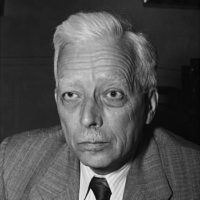Dr. Dyer’s unusual administrative abilities and scientific distinction led ultimately to his appointment as director of the National Institute of Health. In this capacity, he greatly expanded the physical facilities of that agency and broadened the scope of its research programs in many directions. The scientific contributions of the National Institute of Health, especially during the period of the war, have never been adequately recognized by our government or by the people of this country. Under Dr. Dyer’s leadership during the war years, the Institute concentrated all its resources upon the advancement of scientific knowledge important for the war effort and unselfishly contributed its labors to the common effort in collaboration with the research services of the armed forces, the Committee on Medical Research of the National Research Council, the Office of Scientific Research and Development, and many other official and non-official scientific agencies. Throughout the war, the important scientific contributions of the Institute were pooled with those of others without thought of reward or even recognition. It is therefore not surprising that they remain unheralded.
Shortly after the end of the war and the termination of the wartime Office of Scientific Research and Development, Congress continued an important program of financial assistance to medical research with annual appropriations allocated to teaching institutions and research centers through the Public Health Service. As director, it was Dyer’s responsibility to devise the operational organization for the study of hundreds of applications for the support of research from scientific investigators and institutions throughout the country, to evaluate their relative merit and to determine the reasonableness of their financial needs. This was accomplished in part through the creation of a National Advisory Health Council, consisting of eminent experts in the various medical sciences, together with representatives of the research divisions of each of the armed services and other government agencies.
The National Advisory Health Council is, in turn, served by scientific study sections for each of the major divisions of medical research. These study sections, which include some of the best scientific minds in this country with a fair measure of geographic representation, study in detail all applications for grants-in-aid for research projects in their respective fields, and recommend appropriate action to the National Council.
With remarkable efficiency, an extraordinary number of applications have been processed by the staff of the Research Grants Division of the National Institute of Health, and millions of dollars are awarded annually in an effective and impartial manner by this Division to support and stimulate medical research throughout the country and to train hundreds of young investigators under a broad program of fellowships.

